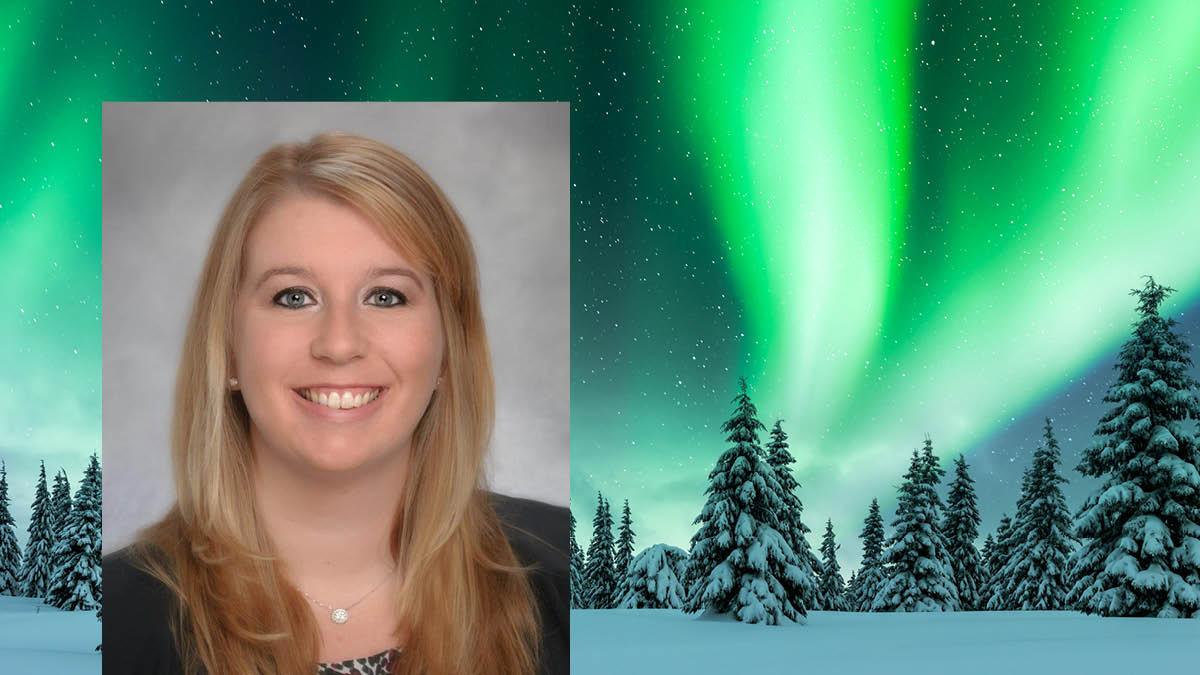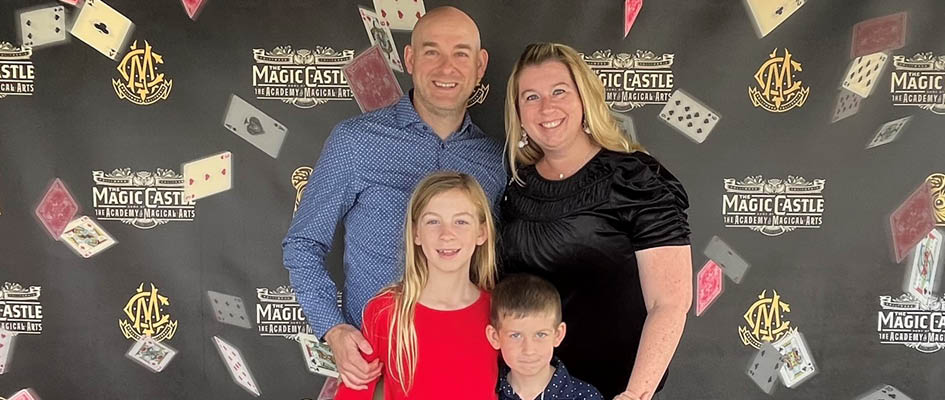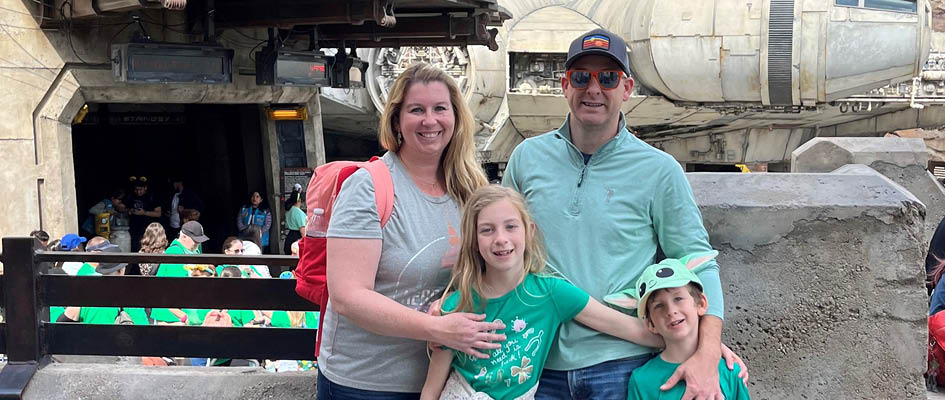Our Voices
Cheryl Teeter-Balin: Your Personal Board of Directors
Cheryl Teeter-Balin brings Meaningful Connections front and center during this year’s Women’s History Month celebration.

Cheryl Teeter-Balin (she/her), a partner in Los Angeles, knows the value of community. As a member of the Forum W (Forum for Women) business resource group (BRG) and a formal mentor in the GroWth Series leadership program developing women managers, Cheryl’s focus on the career development of Moss Adams team members has made her a well-known champion of connection within the Southern California and Phoenix region and the industries she supports.
For Women’s History Month, Cheryl explores her relationship with this year’s theme, Meaningful Connections, and the difference a “board of directors” can make in our personal and professional lives.
What comes to mind when you consider Meaningful Connections, the theme of this year’s Women’s History Month celebration?
The pay-it-forward mentality comes to mind for me. When I started at Moss Adams in Sacramento, I was lucky to find a male sponsor who saw amazing potential in me. He constantly challenged me to improve my technical skills, and his coaching demonstrated an investment in my future.
When I relocated to our Los Angeles office as a senior manager, I was told that my technical skills were among the strongest at my level. While in Sacramento, I couldn’t see how the mentorship I received made a difference, but when I relocated, I could see how that connection made me better at my job and further developed my career in public accounting.
So, I pay that forward. If I’m asked to mentor someone, I’m happy to help, not just on behalf of the firm but to support people in their careers. Of course, I hope Moss Adams will keep the talent we invest in, but even if someone leaves, I’m grateful they spent time with us. The door is always open.
How do you recommend others establish those meaningful connections at Moss Adams?
Things are different now than they used to be. Before the COVID-19 pandemic, Forum W hosted many in-person events like wine tastings or dinners at partners' homes, which allowed us to connect. When I started my career, I became close with my starting class of accountants. Even when I moved to Los Angeles, I saw newer classes of accountants who quickly bonded—they traveled together, hung out after work, and some even became roommates.
A lot of that has changed in our virtual world. We’re still trying to find ways to make it easier to develop authentic connections because community creates a support system, and we all need our own “board of directors.”

How does having our own board of directors bring value to our personal and professional lives?
Our board of directors offers us a great gut check. Ideally, each director plays a different role that helps us on our way. One person may be who we reach out to for comfort or validation, another may challenge how we think, and someone else may give feedback better than others. Some of our directors may be only one of the things we need, some may be a few things, and those at the table may rotate over time, but these folks understand us better than others. We all need those safe spaces.
Developing your own personal board of directors is essential, especially when they have shared experiences to understand the context of what you’re going through. Even though we’ve all gone off to different jobs and life experiences, I'm still close with my starting class. While my friends and family might not always understand the nuances of a career in public accounting, my starting class does. It’s essential to have a community of folks who understand you.
Has Forum W been a place of validation for you in the past?
Of course. The Forum W meetups provided a place for us to talk through challenges that came up at work or offline. Sometimes, there’s a gender tax that comes with being a woman—especially a woman in leadership. Even if they were brief interactions, those connections were a huge part of developing a network and building bridges between all levels.
What can you say about the gender tax you’ve experienced in your career?
Early in my career, the gender tax included the dress code. I was once asked to drive home and grab a jacket because I wore a sleeveless shirt to the office, which was against the dress code. Working from home has made the work environment more casual than it used to be. I wonder if our younger professionals have even heard of pantyhose.
In the last few years, I’ve spoken with many women leaders across the corporate world about the “little leader” roles we’re asked to take on. A little leader empowers the team, and as someone who enjoys working with people, I’m always happy to be a mentor. However, many women leaders have noticed we’re asked to mentor more often than male leaders because of our empathy, compassion, and strong listening skills.
To be a good coach, we must build trust. That takes a significant amount of time, which is an added layer of responsibility. Women leaders are observing how this is accumulating, often without acknowledging how it weighs on us. It’s frustrating when male leaders might be excused from this responsibility because they’re considered not as good with people.
In accounting, engagements bring financial contributions to the organization, but our people are our inventory. Women may demonstrate a leadership style that allows us to be more invested in an individual’s well-being and personal needs, at times more naturally than our male counterparts, but counseling our people is the responsibility of every leader. We should champion and reward those who are great mentors while being equitable in our evaluation of leaders against this responsibility.

When looking ahead at the future of the corporate world, what hopes do you have for ongoing meaningful connection?
I would love for folks say hi to one another when they’re in the office, even if they haven’t formally met yet. I expect us to be inclusive in the communities we develop. I expect leaders to offer growth opportunities without biases so those with different life experiences can have equal access to meaningful connections.
And I expect that we continue to work toward balance. The flexibility offered in our virtual environment has been great for equity. Women I met early in my career waited until they were leaders before focusing on their families. Some women never felt comfortable making time for that. Now, women at the staff level feel comfortable taking parental leave, which is a wonderful change. The virtual environment has contributed to the opportunity for women to have it all—a family, a great job, and their free time.
Like all things, we need to balance the real benefits of this environment with the benefits of developing community. Broad decisions may not be the solution, but our communities are our culture. Meaningful, inclusive connections will always be at the center of that.
Go Beyond the Desk
At Moss Adams, we believe in the power of possible to empower our clients and people to pursue success however they define it. Explore stories about our professionals, including their personal achievements, at our Beyond the Desk page.